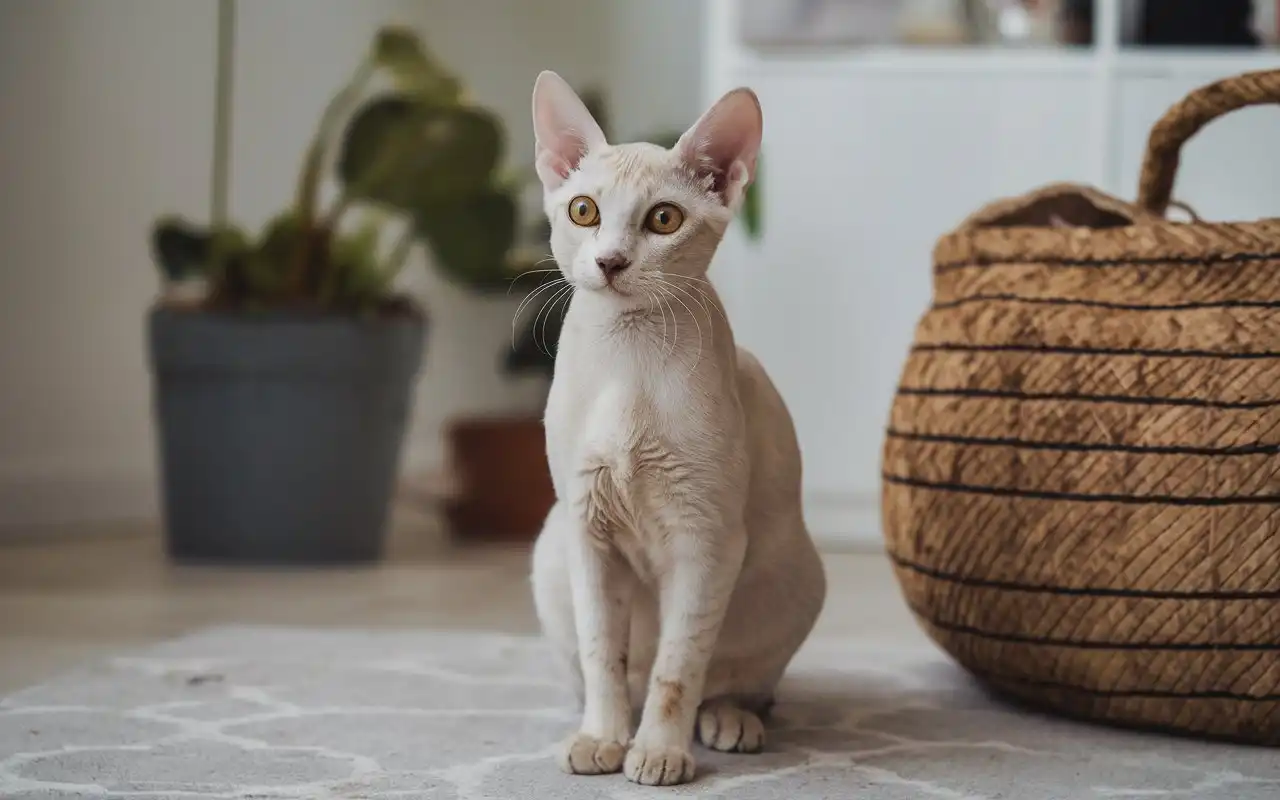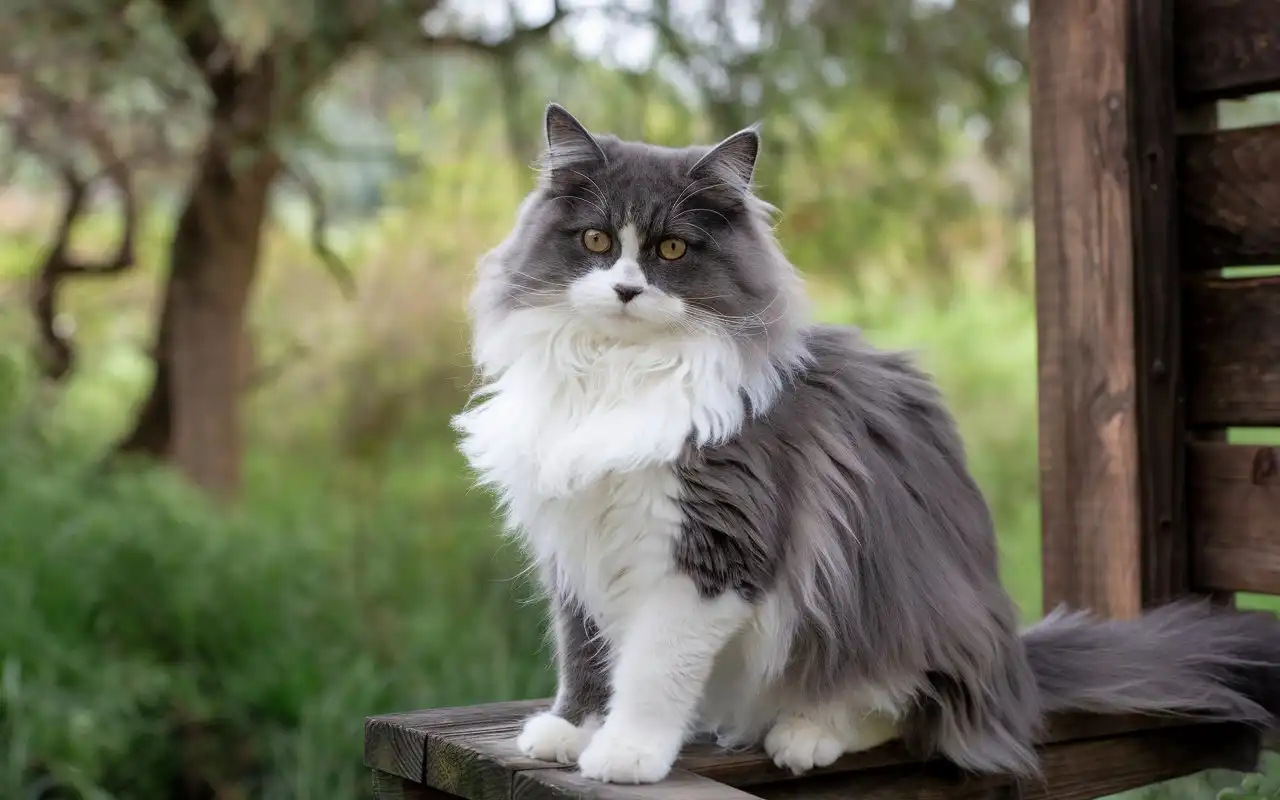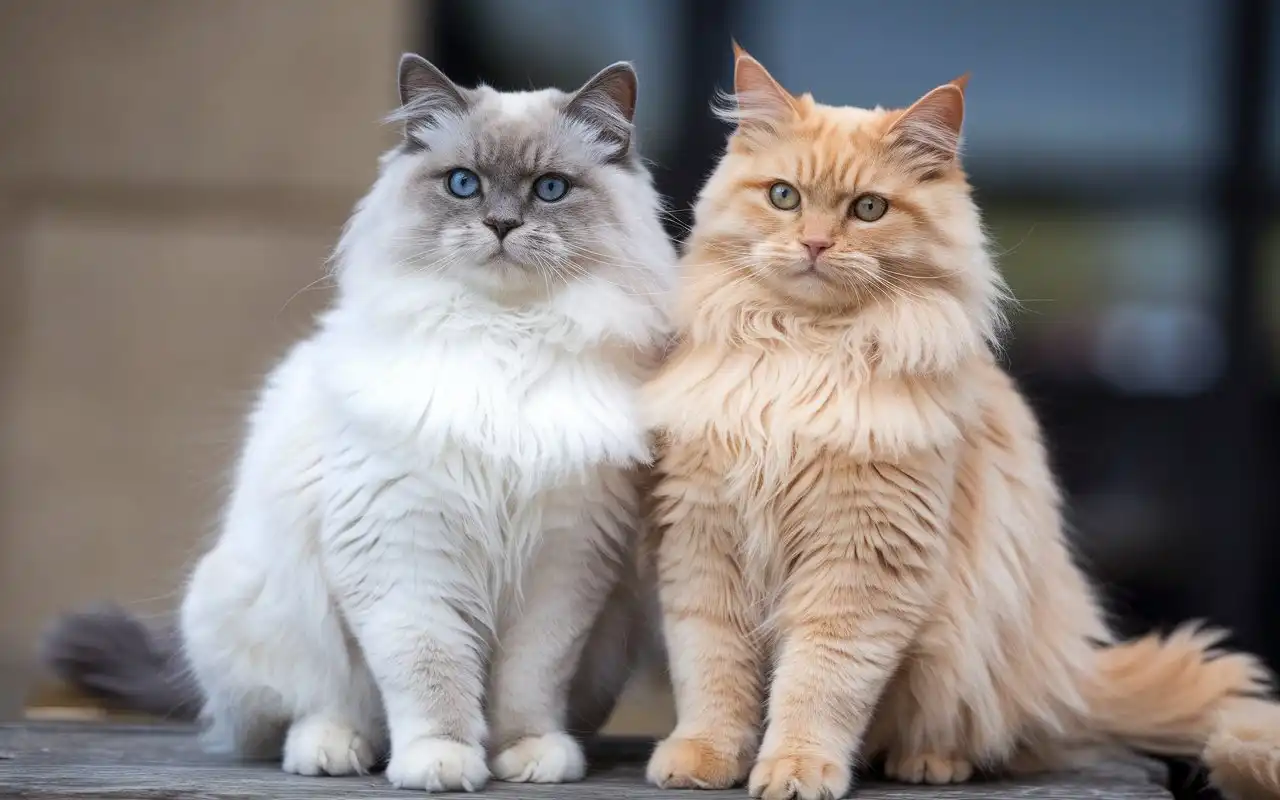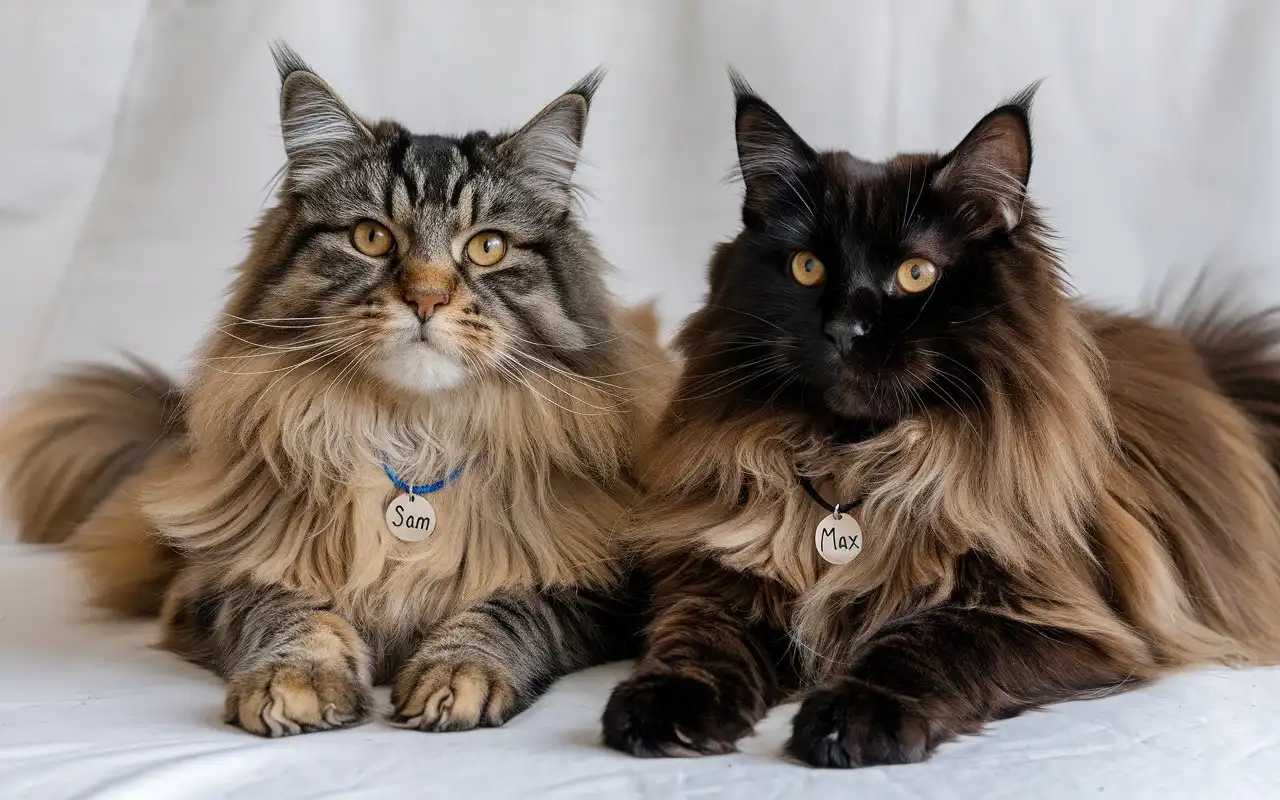Do cats snore? If you’ve ever noticed your feline friend producing tiny snoring sounds while snoozing, you’re not alone. Snoring in cats is not uncommon and can occur for various reasons, from their sleep position to unique physical traits like flat faces. Most cat snoring is harmless. It’s a sign of deep relaxation. But loud or persistent snoring may indicate health issues. Knowing what causes cat snoring can help your furry friend. You can then keep them healthy and comfy during naps. You’ll also learn when to worry and how to fix it. Let’s explore the world of feline snoring!
Table of Contents
Do Cats Snore?
Yes, cats can snore, like humans and other animals. Snoring occurs when airflow in the nasal or throat passages is partly blocked. This causes vibrations that create a snoring sound. It’s most common during deep sleep when a cat’s muscles are fully relaxed, which can narrow the airways. Some factors make snoring more likely. They include a cat’s sleeping position, weight, and traits like a flat face, as in Persian or Himalayan breeds.
Occasional snoring is usually harmless and may simply indicate a relaxed, deep-sleep state. But loud or persistent snoring could signal serious issues. These include obesity, respiratory infections, allergies, and even polyps or asthma. If your cat’s snoring changes suddenly or is accompanied by other symptoms like labored breathing, it’s best to consult a veterinarian. Monitoring your cat’s snoring habits helps ensure they are sleeping soundly and staying healthy.

Why Do Cats Snore?
Snoring in cats often stems from the structure of their respiratory system. Like in humans, partial airway obstructions can cause vibrations that produce snoring. Certain factors, such as breed, age, or even sleep position, can influence the likelihood of a cat snoring.
Anatomy and Snoring
Flat-faced breeds like Persians and Himalayans are particularly prone to snoring. Brachycephalic cats are breeds with short nasal passages and compressed airways. This can restrict airflow. This structural feature often results in vibrations during sleep, causing them to snore.
Breed-Specific Snoring
Brachycephalic breeds aren’t the only cats that snore, but they are predisposed due to their unique facial anatomy. Even in other breeds, minor anatomical quirks can occasionally lead to airflow obstruction and snoring.
Age and Snoring
As cats age, their muscles, including those in the throat, may become less toned, which can increase the chances of snoring. Also, older cats may have mild inflammation or congestion in their lungs. This can cause the sound.
When is Cat Snoring Normal?
Cat snoring is not always a cause for concern and can often be perfectly normal. Understanding when snoring is harmless can help reassure pet owners and ensure their feline friend’s well-being.
Situations Where Snoring Is Harmless
Cats, like humans, go through various sleep cycles, including deep sleep. During these restful moments, their muscles fully relax, and minor airway vibrations can cause snoring. This is common if a cat sleeps curled up or with their head tucked. It might temporarily narrow their airways. Soft, infrequent snoring during these times is usually nothing to worry about.
Indicators of a Healthy Snorer
Healthy snoring in cats tends to be gentle, regular, and unaccompanied by signs of distress. If your cat eats normally, is active, and breathes well when awake, their occasional snoring is likely harmless. Snoring that doesn’t interrupt their sleep or affect their daily routines is generally not problematic.
Sleep Positions and Cat Snoring
A cat’s sleeping position can significantly influence whether they snore. Cats are known for their funny, odd sleeping poses. These can sometimes affect their breathing while they rest.
Common Sleeping Poses
Cats love to curl into tight balls, sprawl on their backs, or drape themselves over furniture in gravity-defying positions. These contortions, while adorable, can occasionally lead to snoring. For example, if a cat’s neck is compressed or its head is tilted oddly, airflow through its nasal passages or throat can be slightly restricted. This may cause vibrations that produce a snoring sound.
Impact on Airflow
Some positions, like sleeping on their backs with their chin tucked, may block the airways. This can cause snoring. However, positional snoring is generally harmless and doesn’t indicate a health issue. If your cat snores only in specific sleeping postures and breathes normally when awake, there’s no need for concern.
Obesity and Cat Snoring
Excess weight in cats is a common cause of snoring. Just as in humans, obesity can contribute to airway obstruction during sleep, leading to those familiar snoring sounds.
How Excess Weight Contributes to Snoring
Overweight cats often develop extra fat deposits around their neck and throat. This extra tissue can compress the airways and restrict airflow while the cat sleeps. It causes vibrations that result in snoring. Also, obesity can worsen existing respiratory or heart issues. This increases the likelihood of snoring. Cats with excess weight are more prone to other health problems, making it essential to address the issue promptly.
Solutions for Overweight Cats
Losing weight can greatly improve your cat’s health. It may even stop their snoring. A balanced diet designed to support gradual weight loss is key, alongside increased physical activity. Interactive play sessions with toys or laser pointers can help your cat burn calories while keeping them entertained.

When to Be Concerned About Cat Snoring
Cat snoring is usually harmless. But some signs may indicate a serious issue. Knowing when to be concerned can help ensure your feline friend stays healthy.
Red Flags to Watch For
Normal cat snoring is typically soft and occasional, often linked to deep sleep or specific positions. However, loud, persistent, or sudden snoring warrants closer attention. If your cat snores and has labored breathing, wheezing, coughing, or nasal discharge, it may signal a health concern. Additionally, keep an eye out for shifts in behavior or vitality. Cats with breathing difficulties or signs of discomfort should see a vet immediately.
Chronic Versus Occasional Snoring
Occasional snoring tied to sleep positions or relaxed states is generally no cause for alarm. Chronic, worsening snoring may indicate medical issues. These include obesity, infections, asthma, allergies, or even growths like polyps or tumors. Cats with brachycephalic features may also be more prone to problematic snoring.
Signs of Respiratory Issues
Respiratory issues in cats can manifest in various ways, often accompanied by snoring. Snoring alone is not always a concern. But, some symptoms may indicate problems that need attention.
Symptoms to Monitor
Watch for signs such as nasal discharge, sneezing, coughing, or difficulty breathing. Open-mouth breathing is particularly concerning, as it often signals significant respiratory distress. Other indicators include wheezing, reduced appetite, lethargy, or audible congestion. These symptoms, when combined with snoring, may point to an infection, allergy, or obstruction in the respiratory system. Cats are adept at masking discomfort, so even subtle changes should be noted.
Connection to Snoring
Snoring can happen when airflow is blocked. This can be due to inflammation or excess mucus from respiratory issues. Conditions like upper respiratory infections, nasal polyps, or allergies can cause snoring. They narrow the airways. In such cases, snoring might be one of the first noticeable signs of an underlying problem.
Cat Snoring and Allergies
Allergies can sometimes cause snoring in cats. Environmental triggers may cause nasal congestion and disrupt airflow. Recognizing the connection between allergies and snoring can help address the issue and improve your cat’s comfort.
Environmental Triggers
Common allergens like dust, pollen, mold, and certain cleaning products can affect cats, just as they do humans. These allergens irritate the respiratory system. They cause inflammation in the nasal passages. Irritants may cause sneezing, nasal discharge, or watery eyes in cats. These can contribute to snoring. Seasonal changes or changes in household products may also exacerbate allergic reactions.
How Allergies Affect Breathing
When a cat’s nasal passages are inflamed or congested due to allergies, their ability to breathe smoothly can be compromised. This narrowing of the airways often results in the vibrations that cause snoring. In more severe cases, allergies can lead to chronic congestion, making snoring more persistent.
Medical Causes of Cat Snoring
While occasional snoring in cats is often harmless, it can sometimes be a sign of an underlying medical issue. Nasal infections, including upper respiratory infections (URIs), are one of the most common causes of snoring in cats.
Nasal Infections
Upper respiratory infections affect the nose, throat, and sinuses. They can cause inflammation and congestion, disrupting airflow and causing snoring. These infections are often due to viruses, bacteria, or fungi. They are especially common in cats in multi-cat homes or shelters.
Symptoms and Treatments
Cats with nasal infections may also snore. They may sneeze, have nasal discharge (clear, yellow, or green), cough, and lose their appetite. Fever and lethargy are also common signs. If your cat shows any of these symptoms alongside snoring, it is important to consult a veterinarian.
Growths or Tumors
Polyps or tumors in a cat’s nasal or throat passages can lead to snoring by obstructing normal airflow. These growths may vary in size. They can block the airways or cause inflammation. This may lead to serious breathing difficulties.
How These Affect Breathing
When a polyp or tumor grows in the nasal cavity or throat, it can restrict airflow, making it harder for your cat to breathe smoothly. This obstruction can result in snoring, as the restricted air passage causes vibrations. Other symptoms may include nasal discharge, coughing, and noisy or labored breathing. There may also be a change in vocalization. Cats may also experience difficulty eating or drinking if the growth affects their throat.

Preventing Cat Snoring
Lifestyle Tips for Reducing Snoring
While some degree of snoring is normal, there are several lifestyle changes you can make to help reduce or prevent excessive snoring in your cat. By focusing on their overall health and environment, you can address many of the factors that contribute to snoring.
Managing Weight
Maintaining a healthy weight is one of the most effective ways to reduce snoring in cats. Overweight cats are more likely to have excess tissue around their neck and throat, which can obstruct airflow and lead to snoring. Feed your cat a well-balanced, portion-controlled diet and encourage regular play to help keep them fit. Interactive toys, laser pointers, and structured playtime are great ways to keep your cat active and burn off calories.
Reducing Allergens at Home
Environmental allergens can contribute to snoring, especially in cats with sensitivities or allergies. To minimize exposure, keep your home clean and free of common allergens like dust, pollen, and pet dander. Vacuum carpets and furniture regularly. Wash your cat’s bedding often. Use air purifiers to improve air quality. Keep windows closed during high pollen seasons. Avoid harsh cleaning products. This will help make your home allergen-free for your cat.
How to Treat Cat Snoring
If your cat’s snoring becomes persistent or is linked to a medical issue, treatment options will depend on the underlying cause. Whether it’s through veterinary care or simple home remedies, there are ways to manage your cat’s snoring.
Veterinary Treatments
If a medical issue causes snoring, your vet may recommend treatments. This may be due to a respiratory infection, allergies, or growths like polyps or tumors. If allergies cause the issue, antihistamines or corticosteroids may help. They reduce inflammation and congestion. In the case of nasal infections, antibiotics or antivirals may be required. For growths or tumors obstructing the airway, surgical removal may be necessary to restore proper airflow. Your vet can treat asthma and other chronic respiratory issues. These can cause snoring.
Home Remedies
Some home remedies may help, in addition to veterinary treatments. They may reduce snoring caused by minor factors. Providing a humidifier in the room where your cat sleeps can help keep their airways moist and reduce congestion. Elevating their bed slightly can improve airflow by positioning them in a way that helps open the airways. Regular cleaning of your cat’s bedding and maintaining a dust-free environment can also be beneficial.
Conclusion
Cat snoring can be cute. But, know when it’s just a quirk and when it might signal a health issue. Know the causes of normal snoring, like sleep position and age. Also, watch for signs of trouble, like loud snoring with breathing issues. This will help keep your cat healthy and comfortable. Regular vet check-ups and quick action on any changes in snoring will help you fix problems before they get serious. If in doubt, consult your vet. It’s the best action. With the right care, your cat’s snoring will be just another endearing trait of their personality.






